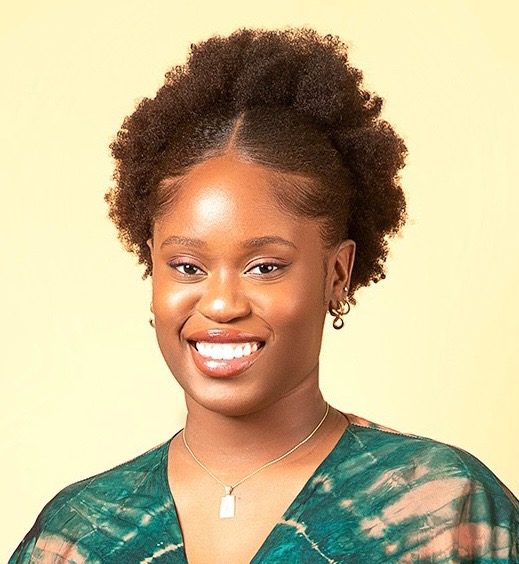
Toluwani Osibamowo voices her responsibility on creating a platform for future Black journalists.
Toluwani Osibamowo is a voice that can be heard on the North Texas Public Broadcasting radio. As a general assignments reporter for KERA, Osibamowo is making a name for herself in radio. Her career started at the College of Media & Communication, where she majored in journalism and minored in English and Spanish.
Osibamowo, an August 2022 graduate, said she initially did not have a full understating of what journalism was. However, she said CoMC helped her recognize many different avenues that people do not know about.
“I could tell it was a very tight-knit family of people, especially in CoMC,” Osibamowo said. “It was just so many people always there with an open hand to help you up and direct you where you need to go.”
Osibamowo said a way she celebrates Black History Month is by watching the concert documentary, Beyonce's “Homecoming”. The film is about Beyonce's performance at the 2018 Coachella that highlights Historically Black College traditions.
“I think it's about consuming Black media,” Osibamowo said. “Like watching Black-led shows and movies and reading books and not just about Black people today, but Black people of the past.”
Osibamowo said African history is different from African-American history and coming from a family of immigrants, she said it was important to educate herself on the difference.
She said she is grateful for the opportunity to have worked at The Daily Toreador and write about present and past Black topics.
“I felt those topics were important for us to recognize, and I was grateful to be a part of that coverage while I was at [Texas] Tech,” Osibamowo said.
Osibamowo grew up in a unique environment. During this time of her life, she said she noticed there was anti-blackness within minority communities in the educational program she was a part of.
“Within that school, Black people were still a minority among the people in the accelerated program. As you got higher in terms of like, the rigor of academics, you saw fewer Black people,” Osibamowo said. “But if you were in anything that's not like AP, you would see more Black people and more Latino people.”
Osibamowo said there is also a lack of Black people in the media industry. Journalism is still a predominantly white field, and while it was something she was aware of when going into her career, she said it still made her feel an odd way to not see peers who looked like her in her classes.
However, she said she is lucky to work in a company that is a diverse place where she is valued for her experiences.
“I think that's something you'll see across public media. There's a lot more diversity as opposed to like your local TV station, or your local corporate or newspaper,” Osibamowo said.
Osibamowo said it is rewarding and fulfilling to represent not only being a Black journalist but being an African journalist.
She said she does not see a lot of Nigerian journalists and saying her ethnic name on the air every day is an amazing opportunity.
“People talk to me and be like, ‘Are you from NPR? I recognize your voice or I recognize your name!', Osibamowo said. “I have a community that's behind me.”
Osibamowo said she is grateful for the opportunities she has been given to pursue her career in journalism, she only wishes there were more resources on how to be a Black journalist navigating in a white industry.
Nonetheless, Osibamowo is creating a guide for Black journalists in Dallas, Lubbock and all over the world. Her advice for Black journalists is to never be afraid to be the first, but make sure you are not the last.
“You might be the first Black public relations intern. You might be the first Black journalist, producer, reporter and that can be scary,” Osibamowo said. “But take responsibility, take that challenge and then do everything you can to do the work and make sure that there can be other people behind you.”
